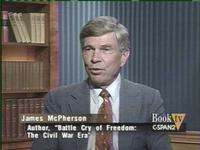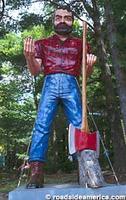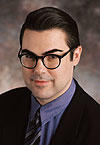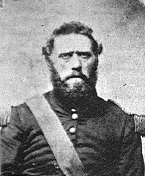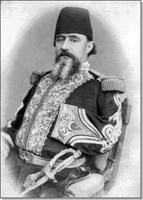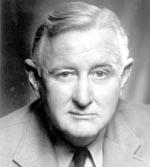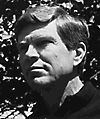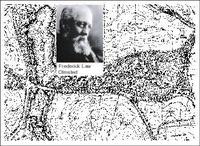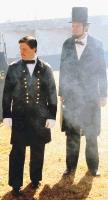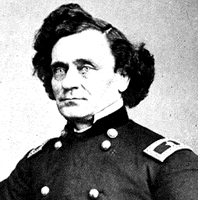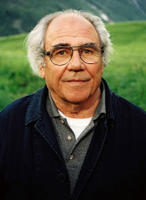
After years of unsatisfying readings in Reformation history, Herbert Butterfield was moved to write a book expressing his displeasure with certain tendencies among history writers.
The Whig Interpretation of History was occasionally cited in my youth, but one rarely hears of it these days.
I'm going to do some violence to his material by juxtaposing his Whig Theory observations against our ACW problems and issues. Emphasis is mine.
Butterfield: … it appears that the historian tends in the first place to adopt the whig or Protestant view of the subject, and very quickly busies himself with
dividing the world into the friends and enemies of progress.
Comment: The way this appears in ACW history is not in the historian assigning "progress" to North or South and then identifying with one side or the other. Instead, the historian creates parallel tensions on each side around the presumed "progress" in prosecuting the war.
Efficiency is his criteria for
progress and
virtue and he laments inefficiency on either side at any point - a very strange basis for the moral outrage doled out to laggards in these works.
Butterfield: [After commenting on American pop histories of the 1920s] ... perhaps it is from these that our [British] textbook historians have inherited the top hat and the pontifical manner.
Comment: This American top hat never went into storage; even today, Civil War authors feel strangely invulnerable to evidence and seem to manage challenges by awarding themselves prizes and issuing edicts to readers (see, for instance, Sears' article "Last Words on the Lost Order"). Neither McPherson, nor Sears, nor the editors of the late Nevins and Catton ever issue editorial revisions to simple errors in fact in new editions - much less do they revisit old conclusions in light of new evicence with footnotes or appendices.
Butterfield: The volume and complexity of historical research are at the same time the result and the demonstration of the fact that
the more we examine the way in which things happen, the more we are driven from the simple to the complex.Comment: All of us, once we read past the pop histories, become intrigued by the complexity of the underlying information. A single episode in the war - say the Battle of Gettysburg - can be composed of hundreds of controversies, each one of which demands analysis and judgement.
Butterfield: The fallacy of the whig historian lies in the way in which he takes his short cut through this complexity.
Comment: In Civil War history, the writer is constructing a story line over hundreds of these difficult issues and a break in the line makes the story into nonsense.
Butterfield: The difficulty of the general historian is that he has to abridge and that he must do it without altering the meaning and the peculiar message of history.
Comment: I think Douglas S. Freeman not only tried to do this honestly, but through footnotes and comment made his decisions as transparent to the reader as possible. Harsh is like this, too. In revising
Lee's Lieutenants, editor Stephen Sears took these bona fides out of the work and threw them away, an act of high self-definition.
Butterfield: Whig history in other words is not a genuine abridgement, for it is really based upon what is an implicit principle of selection. The adoption of this principle and this method commits us to a certain organization of the whole historical story.
Comment: In other words, in our case the ACW historian has not abridged the whole business, but has abridged by selection, taking materials that would advance a predetermined storyline.
Butterfield: The whig historian has the easier path before him and his is the quicker way to heavy and masterly historical judgements; for he is in possession of a principle of exclusion which enables him to leave out the most troublesome element in the complexity.
Comment: These masterly judgements, issued in top hat, make many Civil War histories painful and embarassing to read. On the other hand, excluding evidence to streamline (abridge) history creates a colorful show for the astute reader. It can start with a bold statement hazarded for dramatic effect by one author. Sears, for instance, when younger would strike a pose then carefully, with subtle rhetorical skill, spend many pages qualifying his extreme conclusions. Someone relying on his "expertise," usually with a tin ear, would (after scuttling the qualifications) ratchet the overextended claim to the next level - the effect is like the classroom exercise of pupils whispering a statement to each other and seeing how it comes out when the last student speaks it.
Butterfield: The whig method of approach is bound to lead to an over-dramatization of the historical story ...
Comment: Everything is subordinate to the story.
Butterfield: ... by its over-dramatization of the story it tends to divert our attention from what is the real historical process.
Comment: One could say in Civil War history that agency is everything and process is nothing.
Butterfield: The whig historian too easily refers changes and achievements to this party or that personage, reading the issue as a purpose that has been attained, when very often it is a purpose that has been marred. He gives an over-simplification of the historical process.
Comment: There is a shortage of process all through military history. In the military itself the commander is responsible for all in his purview. Historians have somehow adopted this as a principle of their art (!) and use it as a license to escape the study of complex decisionmaking, the roles of staff and subordinates, etc.
Butterfield: ... whig fallacies become our particular snare, for they might have been invented to facilitate generalization.
Comment: Our problems are also the fallacies derived from storytelling.
Butterfield: The complexity of interactions can be telescoped till a movement comes to appear as a simple progression. It is all the more easy to impute historical change to some palpable and direct agency. What we call "causes" are made to operate with astonishing immediacy.
Comment: Thus astonishing the general reader with the skill of the storyteller who presents a "clear" and "simple" rendering of complex truth. One often finds admirers of McPherson and company making the point that something difficult was made marvelously plain - with reference only to the writing of it, never to the treatment of underlying sources.
Butterfield: If we look for things in the course of history only because we have found them already in the world of today, if we seize upon those things in sixteenth century which are most analogous to what we know in the twentieth, the upshot of all our history is only to send us back finally to the place where we began, and to ratify whatever conceptions we originally had in regard to our own times.
Comment: Every general Civil War reader seeks a retelling of a story well known - at least, that is what the trade houses believe.
Butterfield: History has been taken out of the hands of the strolling minstrels and the pedlars of stories and has been accepted as a means by which we can gain more understanding of ourselves and our place in the sun – a more clear consciousness of what we are tending to and what we are trying to do.
Comment: History will never be taken out of the hands of the strolling minstrels and the pedlars of stories - and so we need to label these people as entertainers. The author Graham Greene used to take pains to distinguish some of his works labeling them "entertainments" - not novels. There is nothing wrong with making
historical entertainment - but it is awfully confusing to call it "history" and its authors "scholars."
(Yale University Press has recent brought out
an appreciation of Butterfield. It seems to be the first biography of this historiographer.)
 Mike Koepke has noticed something interesting about the settlement of the Brian Pohanka (right) estate.
Mike Koepke has noticed something interesting about the settlement of the Brian Pohanka (right) estate.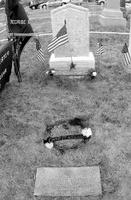 "Be moderate in everything, including moderation,"
"Be moderate in everything, including moderation," 


